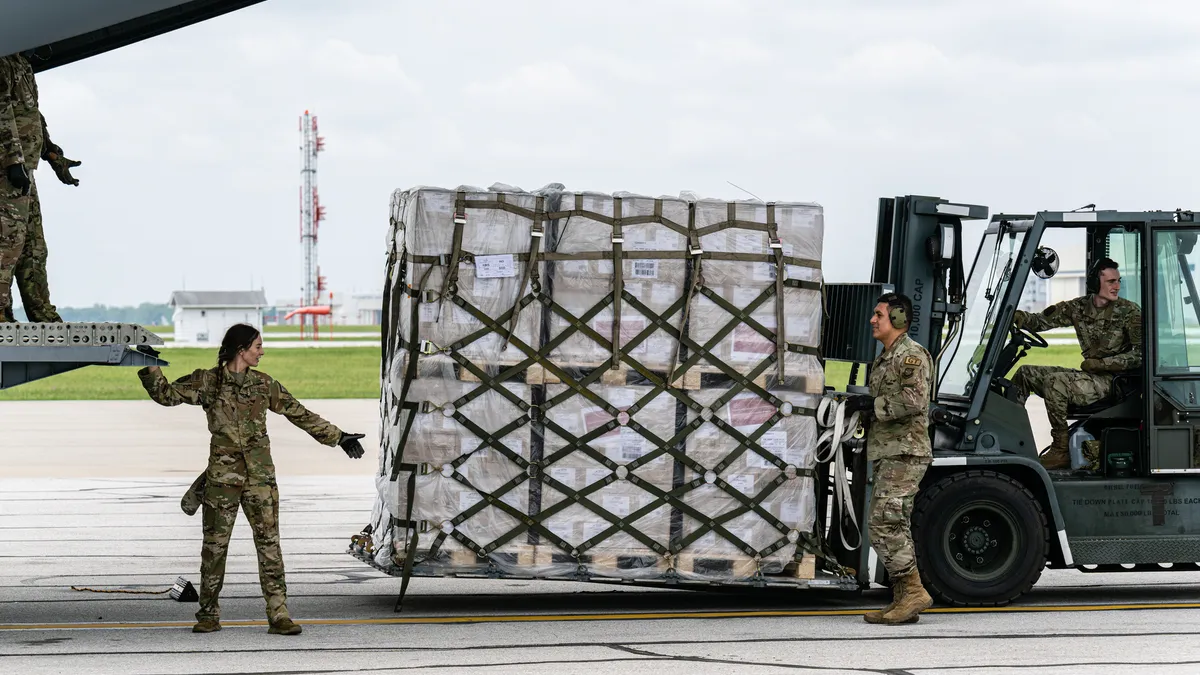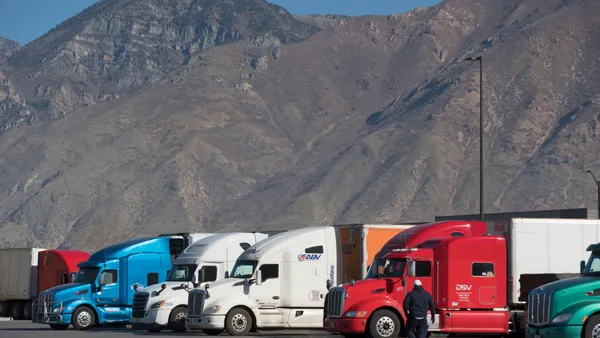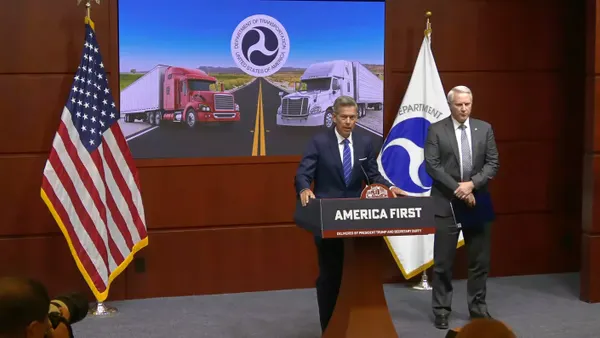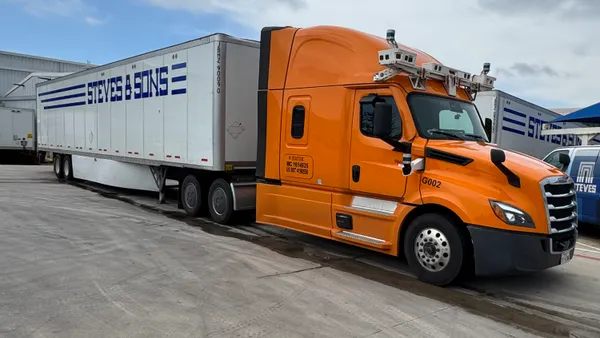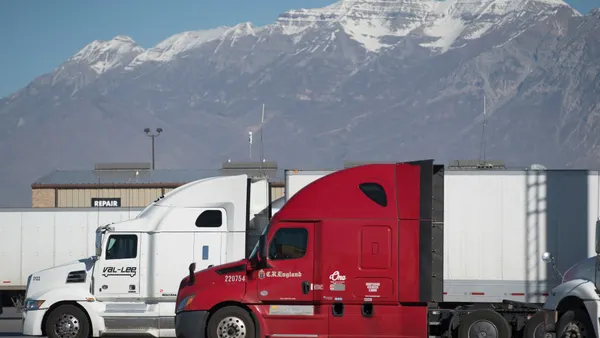UPDATE: July 6, 2022: The Federal Motor Carrier Safety Administration has extended its hours of service waiver for commercial truck drivers carrying infant formula through July 31 or until the end of the formula shortage, whichever occurs first. The exemption, first issued in May, was set to expire on June 30.
Dive Brief:
- The Federal Motor Carrier Safety Administration issued an emergency declaration Monday lifting hours-of-service requirements for commercial truck drivers carrying infant formula, part of a national push to speed production amid an ongoing shortage.
- The rule waives the cap on consecutive driving hours for transportation that directly assists the "immediate restoration of baby formula supplies." Trucks must be carrying baby formula or supplies essential to its production such as packaging or ingredients like whey, casein and corn syrup.
- Trucks carrying mixed loads "with a nominal quantity" of infant formula products are not eligible for regulatory relief. Drivers are once again subject to hours-of-service requirements once a qualifying delivery is completed.
Dive Insight:
From producers to carriers, the White House is engaging all aspects of the supply chain to ease bottlenecks and quickly restock infant formula after the country's largest manufacturer temporarily shuttered a major plant as part of a voluntary recall.
Around 43% of baby formula was out of stock nationwide for the week ending May 8, up from 30% at the end of April, according to a Datasembly analysis.
President Joe Biden has pushed to speed domestic production and secure more supply from abroad. On May 18 Biden invoked the Defense Production Act, which requires suppliers to prioritize orders from formula makers over other customers.
The president has also directed that Department of Defense commercial aircraft be used to pick up formula produced overseas. Approximately 132 pallets of Nestlé Health Science formula for children with allergies and other medical conditions arrived in Indiana from Germany on May 22. That same day, Biden announced a second flight that will bring more formula to Washington, D.C., before it is transported to a Nestlé facility in Pennsylvania by FedEx Express.
More trucks will be needed to transport supply as imports continue to arrive and U.S. companies such as Reckitt and Gerber expand production. The FMCSA order notes the shortage constitutes a "nationwide emergency" that requires "a need for immediate transportation of baby formula."
Carriers transporting formula or supplies will be eligible for regulatory relief until June 30 or when the emergency status is lifted, whichever comes first.



